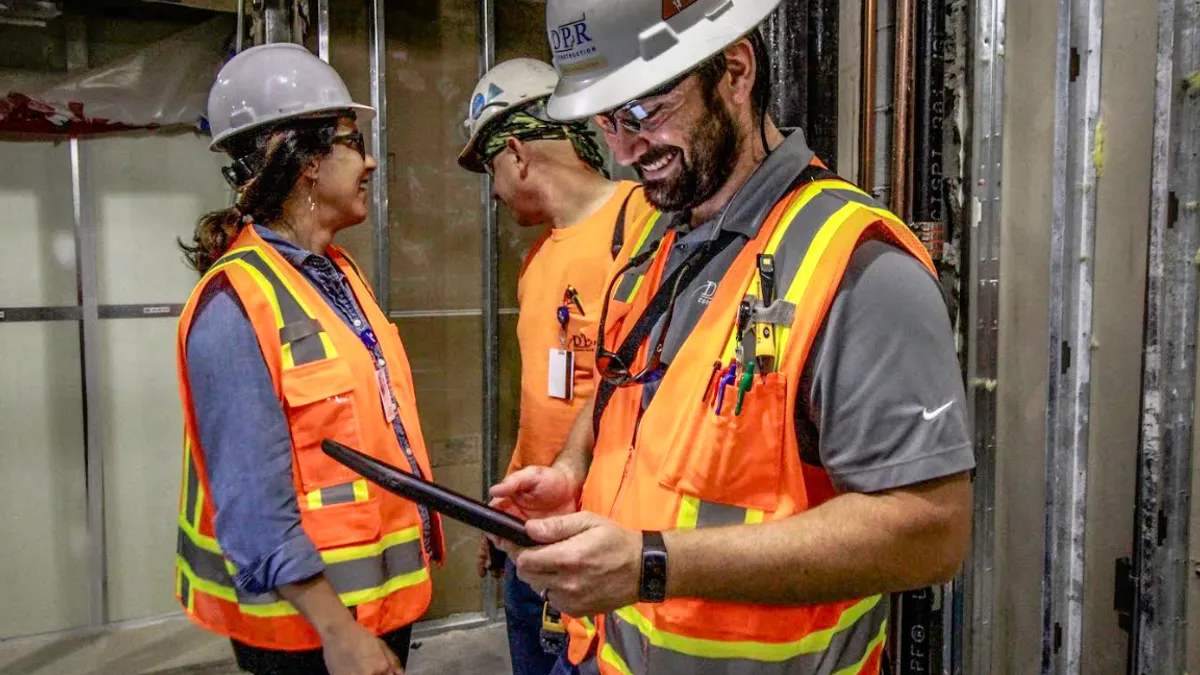Dive Brief:
- The Construction Industry Employee Verification Act (Act No. 75), which requires Pennsylvania construction industry employers to use the federal E-Verify system, will take effect next October.
- The new law, according to the bill's co-sponsors, is modeled after similar legislation in Arizona and is designed to ensure that "unscrupulous" construction industry employers do not "hire individuals not authorized to work in the U.S for their construction teams." Such employers, the sponsors said, "hurt workers by driving down wages, create an unlevel playing field for other employers to compete against, and deprive government of revenue that would be used to fund programs like unemployment compensation."
- Employers that violate the law will be required to terminate unauthorized employees and will be placed on a three-year probationary period for each business location where the unauthorized employee performed work. Business licenses may also be suspended; repeated violations can result in permanent license revocation.
Dive Insight:
E-Verify is a federal online employment verification system that employers can use to confirm new hires' eligibility to work in the United States. While E-Verify is optional for most employers, it is mandatory for federal contractors, some state contractors, and companies that want to participate in the science, technology, engineering and mathematics (STEM) Optional Practical Training program when hiring foreign graduates of American colleges. A small number of states also require the use of E-Verify.
President Trump has expressed interest in making E-Verify mandatory, possibly as part of a larger overhaul of U.S. immigration law.
The system works by cross-referencing the information provided by employees on Form I-9 with Social Security and Department of Homeland Security (DHS) records. For employers who are not currently required to use E-Verify, there are pros and cons to doing so.
DHS has created a compliance and monitoring division specifically for E-Verify. While that division cannot currently assess any penalties, this could change in the future. Additionally, once an employer enrolls in E-Verify, that employer must use it for all new hires going forward. This process is not always simple and easy; When the government shut down last winter, so did E-Verify, leading to delays and glitches.
On the other hand, E-Verify provides an additional level of verification during employment eligibility checks, and the system has recently been made more user-friendly for employers and employees alike, attorney Susan Cohen of Mintz Levin Cohn Ferris Glovsky and Popeo PC previously told HR Dive.












